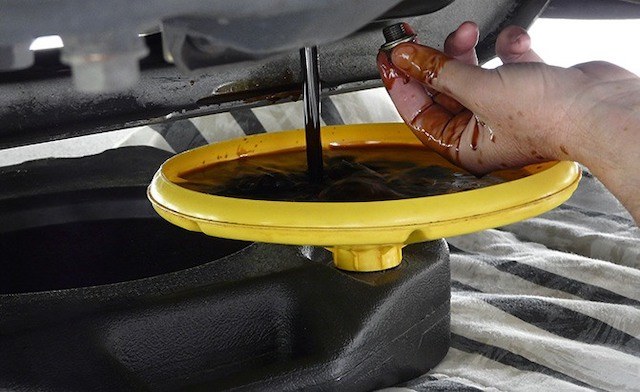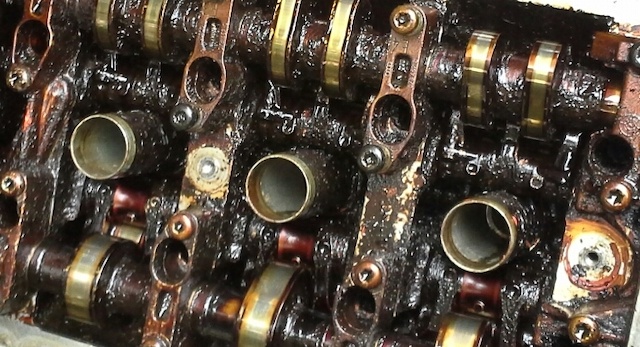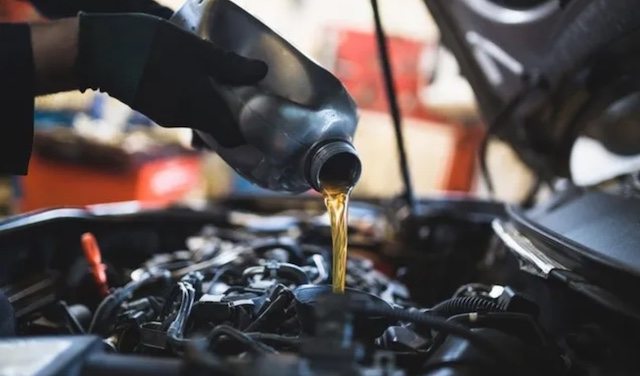What Happens When You Wait Too Long To Change The Oil

Motor oil is a vital part of your vehicle’s engine health, but it doesn’t last forever. That’s why regular oil changes are essential. Car manufacturers provide specific guidelines for when you should change your oil. For example:
- If you drive a passenger car, change the oil every 3,000 to 7,500 miles. The exact interval depends on whether you're using conventional or synthetic oil.
- For motorcycles, the recommended interval is similar—between 3,000 and 7,500 miles.
- ATVs should have their oil changed after every 100 hours of operation.
- Snowmobiles require an oil change every 2,500 miles or before each season.
It's crucial to follow the manufacturer's recommendations. Ignoring them can lead to serious issues down the road.
Old Oil Turns Into Sludge – A Major Problem

Motor oil has a limited lifespan because it accumulates dirt and debris as it circulates through the engine. Over time, this buildup thickens the oil, turning it into sludge. This sludge is not only ineffective at lubricating the engine but also damages its internal components.
Proper motor oil needs to remain thin and smooth to protect moving parts. It also contains additives that help keep the engine clean and efficient. Additionally, oil plays a key role in cooling by absorbing heat and transferring it away from critical areas. In fact, oil can reduce engine temperature by up to 40%.
When oil becomes sludgy, it loses these important functions, leading to:
- Inadequate lubrication
- Reduced cooling capacity
- Loss of protective additives
This can result in severe engine damage if left unchecked.
1. Metal-to-Metal Contact
Without proper lubrication, metal parts inside the engine begin to rub against each other. This metal-to-metal contact causes excessive wear and tear. Over time, this can lead to major engine failure. You might notice symptoms like:
- Increased oil consumption
- Loss of compression
- Fouled spark plugs and oxygen sensors
By the time you see these signs, the damage may already be irreversible.
2. Engine Overheating
Dirty oil reduces lubrication, which increases friction and raises engine temperatures. Prolonged overheating can cause:
- Burned head gaskets
- Warped or cracked cylinder heads or blocks
- Engine seizure
Overheating is one of the most dangerous outcomes of neglecting oil maintenance.
3. Clogged Oil Filter
As oil gets dirtier, it clogs the oil filter more quickly. A clogged filter restricts oil flow, leading to low oil pressure. When this happens, engine components don't get enough lubrication, increasing the risk of damage.
Your Warranty Might Be at Risk

Many vehicle warranties require you to follow the manufacturer’s service schedule. If you skip oil changes or don’t maintain your vehicle properly, the warranty could be voided. That means you’d be responsible for costly repairs or even a complete engine replacement.
Prevention Is Always Better Than Cure
Changing your oil regularly is far cheaper than dealing with the consequences of neglected maintenance. A simple oil change can prevent expensive engine repairs and extend the life of your vehicle. Don’t wait until something goes wrong—stay proactive and keep your engine running smoothly.
Structured Packing,Structured Packing In Distillation Column,Ceramic Structured Packing,Structured Packing Column
Ningbo Cijie Chemical Equipment Co., Ltd. , https://www.chemicaltower.com